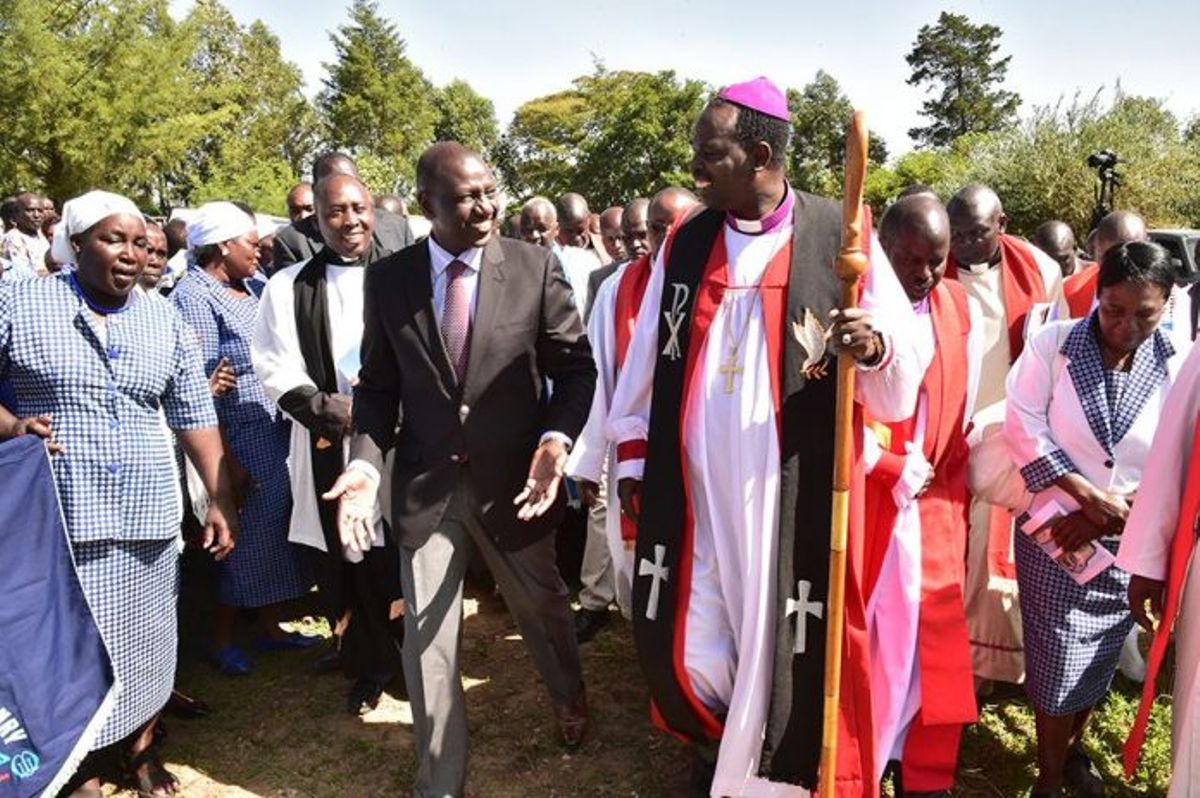
Ruto Announces Austerity Measures to Limit Government Spending In a bid to rein in government expenditure, President William Ruto has announced a new round of austerity measures that aim to reduce recurrent expenditure while prioritizing capital projects. The measures, which were unveiled at a press conference, include: * Salary cuts: Salaries of senior government officials, including cabinet secretaries, principal secretaries, and heads of parastatals, will be reduced by 20%. * Freezing new hiring: The government will halt the hiring of new employees except for critical positions. * Reducing travel expenses: Government officials will be required to prioritize virtual meetings and minimize unnecessary travel. * Curtailing government purchases: Non-essential purchases, such as vehicles and furniture, will be banned. * Consolidating government agencies: Overlapping and inefficient government agencies will be merged or dissolved. The President emphasized that the austerity measures were necessary to address the country’s fiscal challenges and prioritize investments in critical areas such as infrastructure, education, and healthcare. “Our nation is facing a severe fiscal crisis, and we must take bold steps to control our spending and ensure that the resources we have are used wisely,” Ruto stated. The measures have been met with mixed reactions. Some analysts have praised the President’s commitment to fiscal discipline, while others have expressed concerns about the impact on government services and morale. “These austerity measures are a step in the right direction,” said economist David Ndii. “Reducing government expenditure will free up resources for productive investments and stimulate economic growth.” However, trade union leaders have criticized the salary cuts, arguing that they will disproportionately affect low-income earners. “The government should prioritize reducing waste and corruption rather than cutting essential services,” said Francis Atwoli, secretary-general of the Central Organization of Trade Unions. The implementation of the austerity measures will be closely monitored by the National Treasury and the Office of the President. The government has stated that it will review the progress and make adjustments as necessary.Austerity Measures Announced by President RutoAusterity Measures Announced by President Ruto In response to the withdrawal of the controversial Finance Bill 2024, President William Ruto has announced austerity measures to reduce government spending. Presidency and Vice President’s Office * Operational spending targets will be set for the presidency and Vice President’s office. * Confidential voting will be eliminated. * Travel, hospitality, vehicle purchase, and renovation expenses will be reduced. Other State Departments * Parliament, the judiciary, and counties will collaborate with the Treasury to implement budget cuts and austerity measures. Multisectoral Task Force * Within 14 days, a multisectoral task force will be established to review issues related to the content of the Finance Bill. * The task force will also address concerns about the need for austerity measures and anti-corruption efforts. Specific Allocations Affected * The Vice President’s office will no longer receive Sh460 million for renovating the Harambee Annex offices or Sh660 million for the Karen residence. * The allocation of Sh100 million for the purchase of motor vehicles is also canceled. The announcement comes amidst economic challenges facing Kenya, including rising debt levels and a budget deficit. President Ruto emphasized the need for the country to “live within our means” and respect the sentiments expressed by the people.
President William Ruto has announced a raft of new austerity measures aimed at cutting back on government spending and reducing the country’s budget deficit. The measures, which were announced during a press conference on Tuesday, include a reduction in the number of government ministries from 22 to 14, a freeze on new hiring, and a reduction in the salaries of senior civil servants. Ruto said that the austerity measures were necessary to address the country’s “dire” economic situation. He said that Kenya’s budget deficit had reached unsustainable levels and that the country needed to take steps to reduce its spending. The austerity measures are expected to save the government an estimated Ksh 300 billion ($2.7 billion) per year. The savings will be used to reduce the budget deficit, fund essential services, and invest in infrastructure. Ruto said that he was aware that the austerity measures would be difficult for some people, but he urged Kenyans to understand the need for them. He said that the measures were “necessary to secure the future of our country.” The austerity measures have been met with mixed reactions. Some Kenyans have welcomed the measures, saying that they are necessary to address the country’s economic challenges. Others have criticized the measures, saying that they will disproportionately impact the poor and vulnerable. The Kenya National Bureau of Statistics (KNBS) has estimated that the country’s economy grew by 7.5% in 2022. However, the KNBS has also warned that the country’s economic outlook is uncertain due to a number of factors, including the ongoing global economic slowdown, the war in Ukraine, and the rising cost of living.
Ruto Announces Austerity Measures to Limit Government Spending
Related Posts
Kate Hudson Recreated Her Iconic How to Lose a Guy in 10 Days Scene During the World Series, and I Can’t Ignore the Fans’ Reaction to It
Kate Hudson isn’t just an award-winning one actress with famous parents; she is also a huge baseball fan. So it’s no surprise that she attended this year’s World Series to…
Software Catalog Unveils Array of Cutting-Edge Solutions for Enterprise Transformation
Software Catalog Unveils Array of Cutting-Edge Solutions for Enterprise TransformationSoftware Catalog Unveils Array of Cutting-Edge Solutions for Enterprise Transformation Technology is rapidly reshaping the business landscape, making it imperative for…